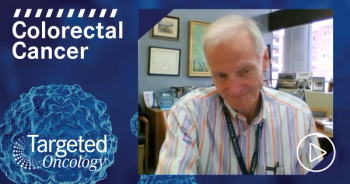
Tanios Bekaii-Saab, MD: Treatment Toxicities and Quality of Life
To what extent do you consider treatment effects on patients’ quality of life in advanced/metastatic colon cancer? Are the differences between chemotherapy regimens sufficient enough to inform your choice of combination chemotherapy and bevacizumab?
I think quality of life should be the prime driver. This is a palliative setting. These patients are not going to be cured of their cancer for the most part. A small subset of patients with isolated liver metastatic disease could potentially be cured, or live disease free for prolonged periods of time, but the overwhelming majority of patients, about 90 to 95%, will never be cured. So your primary goal should be palliation, and essentially quality of life is an important piece of the equation.
There's also the cost, which we now call financial toxicity. The quality of life is primary when it comes to the elongation of survival. Both regimens do prolong survival, and both have toxicities have we've discussed. Both are acceptable depending on the patient's preference.
I think it's very important to have a very frank discussion with the patients about the different regiments, about their differential toxicities more diarrhea, more neurotoxicity, more neutropenia, more fatigue, et cetera. The other thing I think that's important to keep in mind is that for most of these regimens, continuing with the chemotherapy combination, beyond 4 to 6 months, is really not indicated anymore. We have a lot of data that suggests we can go into a maintenance phase, meaning you drop the irinotecan or oxaliplatin after 4 or 6 months and patients will continue on 5FU or capecitabine plus bevacizumab, and their outcomes seem to be very similar. So you really don't need to keep beating up on patients because you add the risk of toxicities.
Sometimes patients prefer to take chemo holidays, meaning you stop all chemotherapy after 4 to 6 months of treatment. These holidays have been looked at in a number of studies and what they would suggest are that you shorten the progression free survival if you don't maintain chemotherapy. It doesn't seem to affect survival significantly. In other words it is possible that you could essentially provide certain patients, let's say those that have a complete response, or those that have a very solid response and no evidence of growth, a holiday. If they want to travel or do something else, I think it's acceptable to give patients holidays in a palliative setting.
Unresectable Colon Cancer: Case 1
68-year-old man was diagnosed with advanced, unresectable colon cancer has just started treatment with FOLFIRI plus bevacizumab.










































